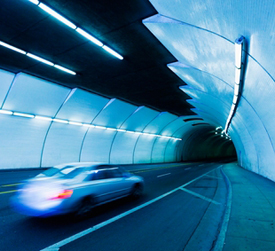Global Scans · Automotive · Weekly Summary

WHAT'S NEXT?: Automated vehicles could lead to a significant increase in vehicle-sharing and a significant reduction in the size of the global vehicle fleet, emissions, travel time, associated infrastructure and costs. By 2030, electric vehicles could represent about 30 percent of all new cars sold globally. Future connected car applications will drive a 150% increase in demand for contextual information between now and 2020.
- For batteries for electric vehicles, 80000 tons of lithium per year would be needed in 2040. EnergyVille
- Jet-kerosene demand is poised for strong growth, albeit from a relatively low base, while gasoline demand will witness moderate growth due to the electrification of India's vehicle fleet. ThePrint
- The number of haulage and commercial vehicles entering the UK UK from European countries has reduced in recent years, which may decrease importation risk. GOV.UK
- Mastercard has teamed with Last Mile Solutions, a provider of a hardware agnostic management platform for charge point operators with locations throughout Europe, to establish payment standards for the electric vehicle charging industry that will enhance the user payment experience. MarketScreener
- In Germany, the potential for electric vehicle (EV) sales is buoying otherwise low investment among Chinese companies. China Briefing News
- The Electric Vehicle (EV) industry has hit full speed, with the UK government pledging that all new cars will be zero emission by 2035. SweetCrudeReports
- Today, Mastercard and Last Mile Solutions announced a new partnership to establish new payment standards for the Electric Vehicle (EV) charging industry, that will enhance the user payment experience at charging stations. Fintech Finance
- The UK UK battery strategy allocates £2 billion until 2030 to establish global leadership in sustainable battery design, support the automotive transition to zero emission vehicles and foster economic growth through strategic partnerships in critical minerals. GOV.UK
- The global economy is expected to remain weak in 2024, but inflation is easing and interest rate cuts in major markets may be on the cards in the second half of the year, which would support the South African automotive industry's export performance. Novus Press Bulletin
- By 2030, Thailand's car manufacturing capacity is expected to reach 2.5 million units, with zero-emission vehicles making up 750,000 units and ICE cars representing 1.75 million units. Thaiger
- The share of electric vehicles (EVs) in global car sales is forecasted to range between 62% and 86% by the year 2030. AMCS Group
- Suppliers of electric vehicles are the big winners from the Albanese government's fuel efficiency standards with one industry group saying half of all new cars will be electric by 2029 and 100% by 2035 on the proposed trajectory. The Guardian
- California and U.S. states which take its lead want to ban the sale of new ICE cars by 2035, although allowing a limited number of plug-in hybrid electric vehicles. Wintonsworld
- With the UK's zero emission vehicle mandate requiring 100% of new cars and new vans sold in Great Britain to be zero emission by 2035, the LEVI Fund is vital for supporting local authorities to increase public EV chargepoints, particularly for residents who do not have off-street parking available. Energy Saving Trust
- Critics have complained electric vehicles will pay around twice in RUCs what efficient petrol cars are paying in fuel tax - although some have countered that EVs are heavier, and will require costly upgrades to NZ's power infrastructure. NZ Herald
- In stark contrast, Tesla, which has been offering sharp price cuts since last year in major markets including the US and China, suffered a vehicle margin reduction last quarter and warned of slowing EV demand in 2024. Times of India
- The faltering global economy is expected to slow the growing demand for oil from in 2024, before the take-up of electric vehicles in the second half of the decade causes consumption to reach a peak. The Guardian
- The Indian government's targets for EV adoption - 40% for buses, 30% for private cars, 70% for commercial vehicles, and 80% for two-wheelers by 2030 - represent a decisive shift towards a more sustainable future in the transportation industry. EMobilityPlus
- By separating out bumpers before a vehicle is recycled, MBA Polymers UK can increase the efficiency of its processes and limit the risk of contaminants to create the higher-performance sustainable materials that car makers increasingly demand. ATF Professional LLP
- The IVECO-badged vehicle will be the first export model to apply Hyundai's new Global all-electric Light Commercial Vehicle platform, a dedicated global EV platform made for commercial vehicles ranging from GVW 2.5 tons to 3.5 tons. Yahoo Finance
- The IEA envisages 230 million electric vehicles on the roads by 2030 - with no consideration for the amount of GHGs produced and the destruction of the biosphere that the mining and refining of lithium, nickel, cobalt, cadmium, copper, and other minerals for batteries will create. Leftcom
- Many countries are bringing in bans on the sale of new combustion engine cars, with the UK government announcing in 2020 that new non-plug-in vehicles would be banned by 2030, with Sweden announcing a similar ban and Norway confirming it will introduce its ban on new petrol cars by 2025. Mining Technology
- Global demand for aluminum is projected to double between 2019 and 2050, due in part to the growing popularity of electric vehicles. Story major automakers chinese aluminum produced uyghur
Last updated: 10 February 2024
